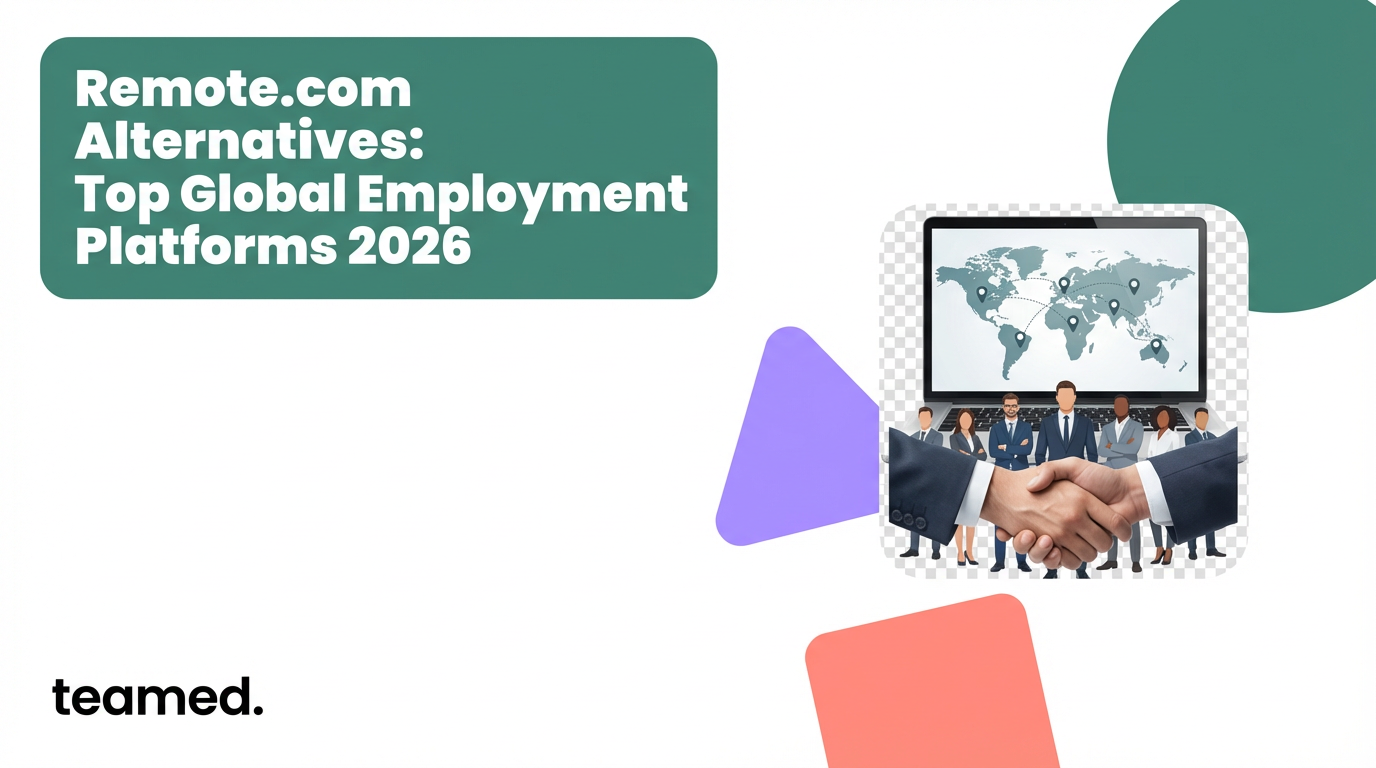Key Takeaways
- PTO rules vary widely worldwide - from no federally mandated PTO in the U.S. to 25–30 days plus holidays in much of Europe, global employers must adapt policies country by country.
- Compliance is critical - ignoring local laws can lead to fines, lawsuits, or unexpected payouts; accurate recordkeeping and local expertise are non-negotiable.
- Culture shapes time-off habits - Scandinavians embrace long summer breaks, while in parts of Asia employees may hesitate to take leave despite entitlement.
- PTO covers more than vacations - sick leave, parental leave, bereavement, and even sabbaticals often fall under paid time off, depending on jurisdiction.
- Policy design matters - rollover, “use-it-or-lose-it,” and unlimited PTO models all impact fairness, compliance, and employee wellbeing differently.
- Technology simplifies management - integrated platforms that track local rules, sync with payroll, and connect to Slack or calendars reduce errors and improve visibility.
- Managers must encourage usage - leading by example and planning coverage ensures employees actually take breaks, boosting wellbeing and productivity.
- Teamed makes global PTO seamless - by localising policies in 150+ countries, syncing compliance with payroll, and providing HR/legal support, Teamed helps lean teams manage leave confidently.
- Future trends are shifting - from flexible PTO models to mental health leave and four-day workweeks, global benefits continue to evolve.
For globally distributed teams, questions about time off quickly highlight regional differences, such as summer breaks in London, sick leave in New York, or public holidays in Tokyo. In this scenario, basically each of your team members want to know about their holidays, those ones where they'll be still getting paid. To be precise, they have this question hovering over their mind, “how much time off do I get?” Here you have to understand that the answer couldn't be a one-liner as it differs country by country.
For example, In the U.S., workers get about 11 paid vacation days a year. In many European countries, employees get 25–30 days, plus public holidays. Another critical point to note is: almost every country requires paid time off by law except the U.S. on the federal level. For companies hiring worldwide, this means you can’t ignore PTO. It’s not just a “nice to have,” it’s a rule you have to follow.
At Teamed Global, we help companies deal with these challenges. We’ve seen how confusing PTO laws can feel, but also how good policies make a real difference. Done right, PTO isn’t just about compliance. It makes teams healthier, happier, and more loyal.
So, if you are willing to know more about it, keep reading this page.
Why Is PTO Important for Global Teams?
Paid time off is not merely just a perk. It plays a big role in trust being built, teams being kept productive, as well as compliance with local laws existing.
The challenge is that what feels standard in one country may be perceived as unfair in another. That’s why PTO is one of the hardest things to get right for global teams.
How does PTO affect employee wellbeing and productivity?
Employees who take breaks usually show improved performance over time. Employees who take regular rest are more likely to remain creative and problem-solve effectively. Rest also helps people focus better.
Also since remote teams can find work and personal life blurred. In such scenarios clear time-off rules would help people avoid feeling like they need to be “always available,” for late-night emails, weekend work, and eventually burnout could also be prevented.
When companies encourage PTO and leaders set the example, employees are more likely to use it. The result? Less stress, lower turnover, and better-quality work.
What happens when PTO isn’t compliant with local labour laws?
Ignoring local rules involves a certain amount of risk. For example, European governments treat leave laws with seriousness. Fines as well as audits can result from not following them. Lawsuits also can be a result of that.
Companies within some countries are sometimes required to pay employees for denied or unused leave. So, a large unexpected bill might be facing you later on if you do not plan for that.
In short: comply as you have no options. It safeguards both your business and staff.
How do cultural expectations shape PTO norms globally?
It’s not just laws but culture plays a role too.
- The majority of people living in Scandinavia take those long summer holidays. Therefore, businesses slow down.
- In some Asian countries, long hours are still seen as a sign of dedication, so employees may hesitate to take time off even if they can.
To global employers, the best move is to respect local customs but also send a clear global message that taking PTO is healthy, not a weakness.
What Does PTO Include? Is It Just About Vacation?
PTO usually covers more than vacations. Depending on the country, it may include sick leave, parental leave, or even sabbaticals.
What types of PTO are typically offered by employers?
Here are the most common types:
- Vacation leave – Planned time away from work, generally for rest or for travel.
- Sick leave – For illness as well as for recovery, often tied to the medical notes and to the pay rules.
- Personal days – For urgent or personal needs like appointments or family matters.
- Public holidays – National or regional fixed holidays. Some countries have many. Others only have a few.
- Parental leave – For new parents, there is time off offered. In some places, this can last months.
- Bereavement leave – This is following the loss of a loved one.
- Sabbaticals – Study or personal projects call for longer breaks that are often unpaid.
How do "use-it-or-lose-it" and rollover policies work?
Some companies say unused days expire at the end of the year (“use-it-or-lose-it”). Others let employees carry them over, but usually with limits. A middle approach is more common: limited rollover plus a rule that employees must use a certain amount each year. This keeps people from overworking and avoids financial risks for employers.
What’s the difference between accrued vs. unlimited PTO?
- Accrued PTO: Employees often earn time off gradually month by month. This is easy to track and budget.
- Unlimited PTO: Sounds great, but often people end up taking less time because expectations are unclear. Also, in many countries, companies still need to track a minimum amount for legal reasons.
How Do PTO Policies Vary by Country?
PTO rules are very different around the world.
Why is the U.S. notable for having no federally mandated PTO?
The U.S. does not have any federal law that requires some paid vacation time, unlike most other developed countries. So, usually employers decide what they will offer. The rules about sick leave form a patchwork, although some states or cities require it.
PTO can be a big selling point when hiring within the U.S. for global companies. Companies become more attractive to candidates by offering more than the average.
How does the EU Working Time Directive shape European leave policies?
The EU Working Time Directive sets a minimum of four weeks’ paid leave. Most countries go beyond that. In France and Germany, employees often get 25–30 vacation days, plus public holidays. That means many European workers enjoy 35–40 days off every year.
For employers, this means planning carefully. Leave is not just generous—it’s also legally protected.
How Should Global Companies Handle PTO Policies Across Borders?
There’s no single answer. Some companies choose one global policy, while others adapt to each country. The best approach depends on your size, culture, and goals.
Can you offer a unified PTO policy across different countries?
Yes, though it usually means a single standard is set around everywhere. For example, if your strictest country requires 25 days, you might just offer 25 days globally. It keeps things simple and fair.
Public holidays, however, will always vary by country.
Why is harmonising global benefits a legal and operational challenge?
Because each country has unique laws. Some require carryover, some don’t. Some demand payout of unused leave, others forbid it. Training managers and setting up systems that reflect all this takes effort.
What’s the role of an Employer of Record (EOR) in managing local leave policies?
This is where an EOR like Teamed Global helps. Since we serve as your legal employer locally, local rules are followed. We handle leave calculations, we keep you compliant plus we track public holidays for you.
What Are the Best Practices for Managing PTO for Remote & Distributed Teams?
Remote teams need clear systems for time off. Without them, things fall through the cracks.
How do you track leave when employees are in multiple countries?
The best way is with software that knows local rules. It should calculate leave automatically, sync with calendars, and show managers who’s available at any time.
Why self-service platforms (like Teamed) help simplify global PTO management
Self-service tools let employees check their balances and request leave without waiting on HR. For payroll teams, approved leave flows into pay runs without errors.
What tools integrate with PTO tracking (e.g. Slack, HRIS, calendars)?
Integrations make things smooth. A Slack bot can handle requests, HR systems keep records, and calendars show when people are away. Project tools can also adjust deadlines based on leave.
How can managers encourage PTO usage without disrupting operations?
Managers should lead by example. When they take breaks, employees feel more comfortable doing the same. Cross-training and clear documentation also help keep work moving when someone is out.
What Legal Pitfalls Can Employers Face with Paid Time Off?
PTO laws change often. Getting it wrong can cost you.
Is offering unlimited PTO always a good idea from a legal viewpoint?
Not always. In countries that require tracking, unlimited PTO still needs records. Employers should also watch for fairness—if some people take a lot and others don’t, it can cause problems.
What are the risks of not adhering to local holiday entitlements?
Missing mandatory holidays can mean fines, lawsuits, or government inspections. Automated tracking reduces this risk.
How should PTO be handled during termination or resignation?
In some countries, unused leave must be paid out when someone leaves. In others, it can be forfeited. Knowing the law and keeping records is key.
What records should you keep for audit or compliance?
Keep everything - accruals, balances, requests, approvals, and payouts. Some countries require these for years. A digital trail makes audits much easier.
How Can Teamed Help You Manage Global PTO Seamlessly?
Teamed Global helps companies take the stress out of PTO management. By combining local expertise with technology, we make sure you stay compliant in every country.
What compliance and payroll features are built into Teamed’s platform?
Our platform updates automatically when laws change, handles accruals, and syncs with payroll. It also generates reports that are ready for audits.
How does Teamed localise PTO policy for 180+ countries?
We adapt policies to local calendars, religious holidays, and approval rules. Currency and language differences are handled too, so employees feel the system was built for them.
What support do HR teams get when setting up compliant time-off plans?
We support HR with setup, training, and communication. You’ll also get updates when laws change and best practice guidance to keep your team engaged.
What Are Emerging Trends in PTO and Global Workforce Benefits?
Work culture is shifting, and leave policies are shifting with it.
Is unlimited PTO gaining or losing popularity?
It’s slowing down. Many companies now prefer flexible models with clear guidelines, so employees actually take breaks.
What’s the impact of the 4-day workweek on leave policies?
Trials in several countries show that shorter workweeks improve satisfaction. But companies need to rethink how PTO fits into this model.
Are companies experimenting with mental health or wellness leave globally?
Yes. Mental health leave is becoming more common, either by law or company policy. It helps employees stay healthy and often prevents bigger issues later.
FAQs: What HR Teams Ask Most About Global PTO
Can we offer more PTO than required by law?
Yes. Offering more than the minimum is a good way to attract talent. Just be careful about payout rules if someone leaves.
What happens when public holidays fall on weekends?
Rules vary. Some countries give a replacement day, others don’t. Many companies offer an extra day off to keep things fair. The ILO tracker is a good resource.
Do freelancers/contractors get PTO?
Normally no. But misclassification risks exist, and some regions now give contractors more rights. Teamed Global helps with proper classification to avoid surprises.
How do we stay compliant when employing across jurisdictions?
You need three things: a clear global policy, local adjustments, and regular monitoring. An Employer of Record like Teamed Global makes this easier.
Final Thoughts!
Managing PTO isn’t just about counting days off, it’s about building a culture of balance, fairness, and compliance. For mid-sized companies expanding across borders, that gets complicated fast. Every country has its own rules on leave, carryover, pay and getting it wrong creates compliance risks, payroll errors, and unhappy employees.
That’s where Teamed helps. Our platform unifies contractors, EOR hires, and own-entity staff in one system, with embedded HR and legal experts to keep policies accurate across 180+ countries. From PTO tracking to payroll integration, we give lean People and Finance teams the guardrails, templates, and local expertise to get it right the first time.
With Teamed, you can stay compliant, simplify leave management, and give employees a consistent experience worldwide without building a big HR ops team.
Ready to make global PTO stress-free? Book a quick fit call with Teamed and see how we can help.







